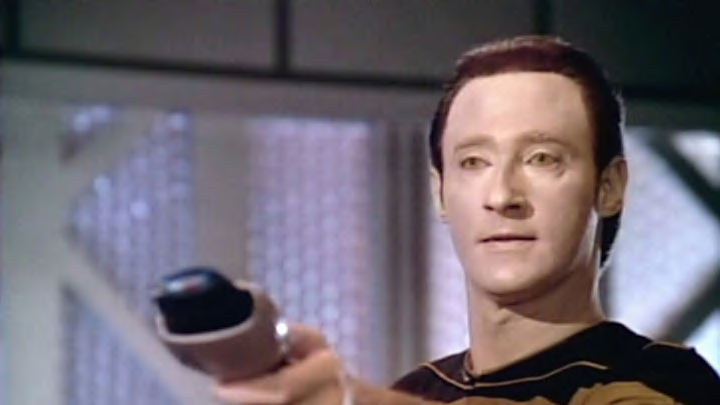It's St. Patrick's Day and due to that, we thought it'd be interesting to talk about one of the most controversial episodes of Star Trek: The Next Generation of all time. The episode is "The High Ground" and it's largely benign if you're in 99% of the world. Yet, if you live in Ireland or Northern Ireland, it can strike a nerve. The two countries have been at odds for decades, and remain so to this day.
The reasons are varied and more complicated than a simple Star Trek post can go into, but let's just say the idea of predicting a united Ireland didn't go over well at the time the episode aired, and according to the BBC, it was even banned for a time. The prediction that Ireland would be re-unified by 2024 didn't go over well, and as we're in 2024 now and with no shot of a merger of the two countries coming any time soon, it's fair to say this was a bold, hopeful swing, that ended up being a bad take.
Star Trek likes to use historical facts as the basis of the franchise, but as the production of the show continues to travel into the future day by day, it's getting harder to make such bold predictions of the future when no proof exists of such an event happening. It'd be like Discovery saying that Korea was unified in 2055. What proof would they have to, with their whole chest, predict such an event?
Yes, it's their own universe and they can tell the story they want to tell but as so much of their morality plays are based on real events, it's wise to not make up moments in time that you're trying to cite, as you can tend to cause conflicts. It's one thing to say that "X-thing happened in 2100", because you're pretty far off from that point in time.
It's another thing for writers in 2024 to write that by 2030 the Middle East were unified under one country. It feels less like an event in Star Trek's historical-fiction universe and more of a bold prediction. Star Trek needs to stop trying to toe the line between what happened and what will happen. It's one thing to cite the assassination of Abraham Lincoln, as that did happen. it's another thing to say that in 2089 Lincoln was cloned and caused chaos at the last standing mall in the United States.
It's moments like those that can age poorly and make the show feel dated and out of touch and that's a great way of destroying its rewatchability.
